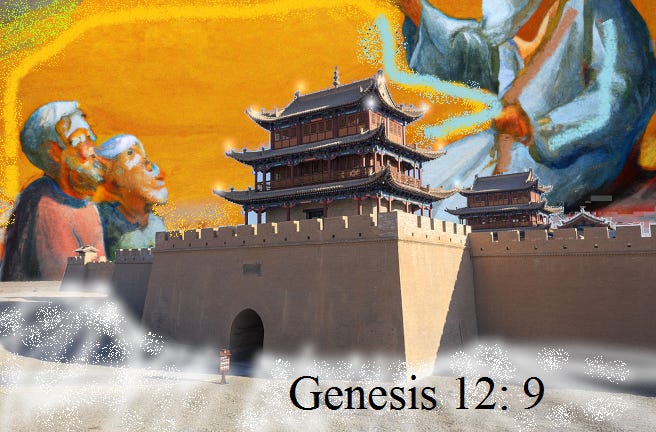Genesis 12:9
A Mangghuer Translation, part 9/9
This is a short verse, so we’ll do it all in a single go.
NJV. Then Abram made his way stage by stage to the Negeb.
Mangghuer. Zhada amaji yaoji rijiaŋ. Bai.
Zhada = Abram
amaji = to the Negev/South
yaoji = comingly.
rijiaŋ = came.
bai = [Emphasis].
I explain my translation of Abram into Zhada in Genesis 12:1. The end refers back to the beginning.
yaoji rijiaŋ literally means came comingly (towards), and is my translation of stage by stage.
The Hebrew sentence ends in a solitary peh (פ), which acts as a punctuation marker.
The Mangghuer bai is an Emphatic Marker which often appears in folktales and other narratives. Older speakers use it more often than younger speakers, especially when talking to the latter.
We are the children of God, and Abram will soon become the father of many children.
The Hebrew Neh’gheb (נגב)means south, and it comes from an unused word meaning parched, as this region experiences regular droughts.
For my translation, I looked back to my translation of Numbers 21:4-9, where one word for desert also means mouth.
Two components build amaji:
1. ama = mouth/desert.
2. -ji = towards.
Considering the later events in which Abram and his family become embroiled, mouth is a suitable translation. Lot’s wife gets swallowed up in the destruction of Sodom and Gomorrah, for example.
KJV. And Abram journeyed, going on till toward the south.
Mangghuer. Zhada amaji yaoji rijiaŋ. Bai.
My next translation project will be the Gospel of Matthew 13: 44-46 into the Panamint Language of Death Valley. This has already been published on the Wordpress.

